
Work with all your intelligence
And love.
Work freely and rollickingly as though talking
... To a friend who loves you.
Mentally (at least three or four times a day)
Thumb your nose
At all the know-it-alls, jeerers, critics, doubters.
Brenda Ueland
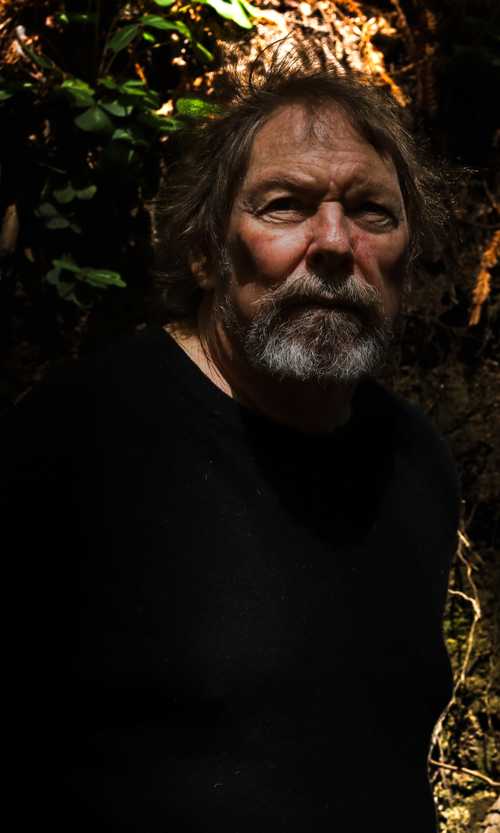
About Jamey
Jamey Gittings is a fiction writer independent of the publication establishment, and the author of four novels. He writes stories of Ironic Justice. Of varied themes, his fiction puts center stage, justice in its ironical context. Whether mysteries, fantasy, social critique, spirituality, or short stories, all his writing deals with social justice in an oblique, left-handed wild-ride, that leaves readers a little better off than when they picked up the book. Isn’t that the reason to write fiction?
Prior to his life as a novelist, he worked for the United Nations, the Government of Afghanistan, and with the Government of India, addressing issues of disability and international development. He holds a Ph.D. from the University of Arizona in the areas of Special Education, Rehabilitation, and Behavioral Psychology. He lives in Big Sur, California and Arivaca, Arizona.
How I Got Here.
I’ve included the quote by Brenda Ueland (formatted as a poem) as it precisely represents my approach to writing and how the writing gets out there.
To take myself out of the third person: After a brief foray into what it takes to publish a book, and conform to the requirements and stricture needed to submit a work to a publisher or agent, it struck me I was back in Miss Muir’s 5th grade classroom doing endless long division homework, (perhaps valuable but tedious). Pleading your case to be read by an agent or publisher, even if it’s not technically begging; waiting-out long periods of darkness and silence to hear back the fate of your child — what parent would endure that? Praying to the God of serendipity, for a chance encounter with a like-minded over-taxed agent or publisher’s assistant to champion your book to those who count — I don’t have the lifespan for that. So, I started my own publishing company. If it’s a flying kiss at the wind, it’s my kiss.
What I Want From Readers.
In books on publishing and writing you find the oft-quoted truism that you must know the readers who you write for, and tell them what you have to give them. I think this is the wrong-way-round. A fiction writer gives what he, or she has to give, and attempts to modify or adapt this to the sensibilities of a particular group or population seems, if not wrong, at least not the point of good storytelling. A more direct approach is rather to ask, what the writer wants from his or her readers, so the reader doesn’t have to waste their time on that particular author. While the result of the two approaches are similar—to bring like-minded readers and authors together—the latter strategy leaves both reader and writer intact. So all of that said, this is what I look for in a reader:
Someone who is uncomfortable with the comfortable; someone who is suspicious of routine; with things as they are usually done.
Readers who bring with them an attitude, and don’t mind a writer who does the same.
Attila Press
Attila Press, is currently a publisher solely of my own books, I know it’s as pompous and arrogant as an attempt to cross Lake Superior on a rubber raft in November, but it’s a better than sitting in silent vigil, and at least my grandchildren will have something to read. If I make it halfway across the lake, I’ll open it up to other hapless authors in their winter years. So here goes.
AttilaPress.com

What I Care About
Kurt Vonnegut once said that an author must start with a list of what she or he cares about, or something close, While, he wasn’t the only one to say that, here are a few of mine:
The worth of each individual. Whomever, wherever, and whatever circumstances he or she find themselves.
The ability of people to rise above obstacles imposed by birth, class, culture; by one’s own doing, or the doings of others. Fighting for right—Tilting at windmills.
The language of how people talk to each other, assert themselves, exchange information and ideas. The sound of language as it relates to context and setting.
Humor and irony. The ability to view and assess one’s self and other’s actions, conditions, and choices, within the context of humor and irony. To see the comedy of situations, even grave one’s — particularly grave ones.
Unresolved questions and mysteries and the struggle of both successful, and unsuccessful, attempts to resolve them. Particularly, the unsuccessful.
Read MoreMy Books
To date I’ve written four novels, one is a sequel, so the works contain four distinct stories and three different themes; the thread that connects them is Ironic Justice in its various forms (justice that is a mirror image, or at least a shadow, of the original crime). I provide the titles and short descriptions below:
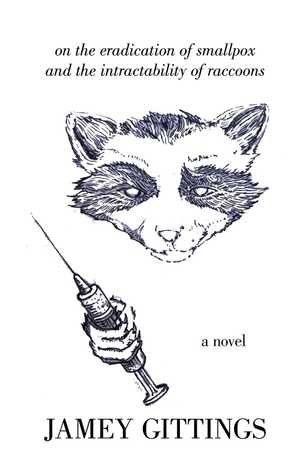
On the Eradication of Smallpox and the Intractability of Raccoons
Ned Alexander is a freshly minted journalism school graduate, under-experienced and over-educated, and he just pulled down “the last job in town” in Tucson, Arizona. As Ned notes, “If people know you’re from Harvard, they’ll hire you so they can tell you what to do, and feel good when you screw up.”
When proponents of the death penalty begin showing up dead themselves, Ned has no time for screw-ups, and he has to draw on all of his background, connections, and problem-solving skills to get to the bottom of matters, all the while navigating the challenges posed by a new boss, an inscrutable co-worker, and a group that advances its aims by working in the shadows and in the sunlight. At every step—from Arizona to Texas to Tennessee to Virginia and D.C.—there are people to meet, mysteries to unravel, and local law enforcement that sees Ned not as a journalist at the nexus of a compelling story but perhaps as the answer to what’s going on and an easy scapegoat. Told in a smart, fast-paced way, On the Eradication of Smallpox and the Intractability of Raccoons is both a raucous ride and an illuminating, timeless examination of our politics, our progress and regress, and our recessions from reason.
Read More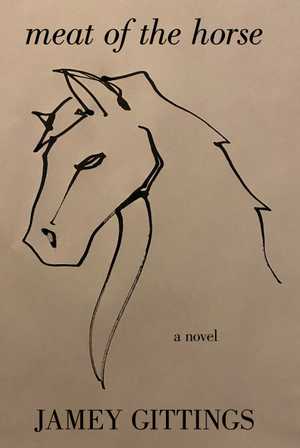
Meat of the Horse
Ned Alexander, a reporter at large for an American newspaper, has alighted in Paris after pursuing a long, dangerous, emotional story in India and Nepal. All he wants is some relaxation and recharging, but interesting—and often deadly—occurrences have a way of finding him.
Before he’s even had time to sleep, Ned is plunged into a unique drama of international intrigue. Human body parts have found their way into horsemeat entrees served by one of the city’s finest restaurants, a prominent American politician has gone missing, and Ned has found allies in his assistant back at his paper, a beautiful doctor and the most precocious nine-year-old girl anyone is likely to meet.
In this story spanning newsrooms in Arizona and Montana, hotels and restaurants, and underground clubs in France, slaughterhouse backrooms in Canada and wild mustang ranges of the high plains, Ned tugs at loose ends, trying to discover where they lead. Amid the surprising turns, profound truths are revealed about where common good and craven self-interests converge and depart, the malignant forces that hide in plain sight, and the renewal of love.
Read More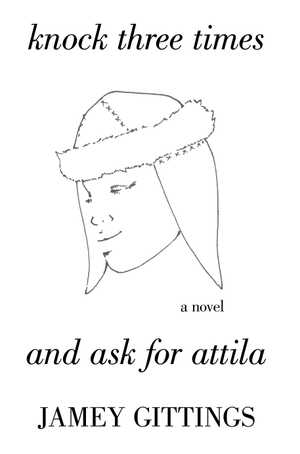
Knock Three Times and Ask for Attila
This is a work of science and fantasy that chronicles the lives and trajectories of 15 young people with Down Syndrome who are subjects in a federal gene replacement therapy experiment that makes the subjects not only as smart as normal (typical) people, but far smarter— geniuses in fact.
The narrator, Mason Free, tells the story of his personal transformation from “retard to genius,” documenting the progress of the group as it becomes a shadow global intellectual force. Often irreverent and sometimes politically incorrect, Mason and his cohorts grapple with cultural and personal biases, the nature of intellect itself, and what it means to be vulnerable, while addressing the societal ills of climate change, environmental destruction, cultural and racial prejudice, wealth inequality, and religious intolerance. Along the way, Mason falls in love and reflects on the nature and power of that love, not only for his girlfriend, Holly, but for his divorced parents, and humanity in general. The story, informed by the author’s own experiences in the field and burnished by imagination, is by turns hopeful and cynical, a work of fiction and a stark warning.
Read More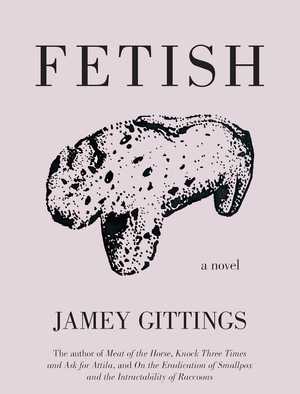
Fetish (Coming Soon)
Fetish. With the delivery of a cigar box containing ancient Zuni fetishes and an exquisite obsidian knife, Tasha finds herself propelled, from her comfortable existence in the New York financial world into an odyssey of spirituality, self-discovery, and magic. Forced to contend with her mixed Native American and Anglo heritage, the effects of her cerebral palsy, and a troubled past, she reluctantly assumes the mantle of shaman for her tribe, as she stumbles through the dangerous alchemy necessity to her survival in a struggle to transform imbalance into balance, as she creates a place for herself among her people and her ancestors.
Read More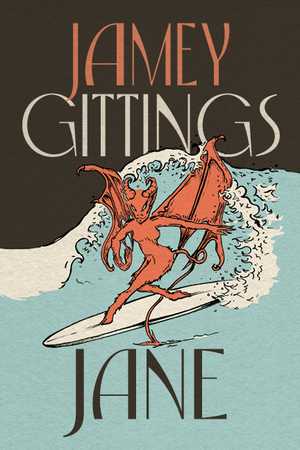
Jane
Jane. Her name was Jane Deriksson, and I was in love with her. She was my girlfriend’s mother, and I had just turned nineteen. That’s the end of my story.
It was summer 1967 in New Jersey, at a place called Long Beach Island. I had just graduated from high school and had accompanied my father back East on a trip to visit his two sisters, Clair and Isobel. That’s the beginning.
But there’s a lot in the middle.